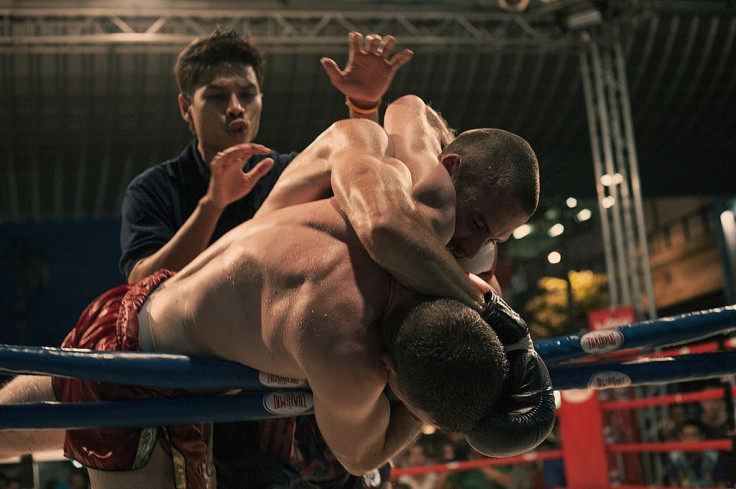Head Blows And Brain Injury: Boxing And Mixed Martial Arts Cause A Similar Loss Of Processing Speed In Fighters' Brains

Is boxing the better sport or does mixed martial arts win that title? While spectators may debate for hours, the answer to that question when it focuses solely on the health of participants is simple: Both are bad, research indicates, even if martial arts combatants have a slight advantage. The repeated head blows sustained by fighters during their battles link to slower cognitive processing speeds and smaller volumes of certain brain parts.
“Repetitive head trauma may be a risk factor for Alzheimer’s disease and is considered the primary cause of chronic traumatic encephalopathy (CTE),” wrote the authors in their new study. Alzheimer’s is a well-known form of dementia, while CTE is a progressive degenerative disease of the brain linked to memory loss, confusion, impaired judgment, impulse control problems, aggression, depression, and progressive dementia.
No Matter Age or Race
To understand how these sports might affect fighters’ brains, researchers from Cleveland Clinic turned to the data collected by the Professional Fighters Brain Health Study (PFBHS). They identified 224 professional fighters: 131 mixed martial arts (MMA) fighters and 93 boxers. The PFBHS athletes were all between the ages of 18 and 44 and the average time these professionals had fought was about four years, with an average number of 10 total matches. While slightly more than half had a high school education (give or take), just under half had spent at least some time in college. In terms of race, 89 were white, 59 black, and 76 other. Next, the researchers matched these athletes with 22 same-aged people with a similar level of education but no history of head trauma.
At the start of the study, all participants underwent an MRI scan to assess their brain volume and then they returned for a brain scan annually for four years after that. At each juncture, the researchers tested their verbal memory, processing speed, fine motor skills, and reaction times as a general assessment of brainpower. Next, the researchers calculated for each athlete a Fight Exposure Score, or FES, which combines duration and intensity of fight career.
Finally, they crunched the numbers and what they discovered will make any mother wince.
Fighters with an FES score of four were found to be 8.8 percent slower in processing speed than those with an FES score of 0. Add to that, the higher the score, the smaller the brain volume, particularly in the thalamus and the caudate. The thalamus acts as a gateway to the cortex, the outer layer of brain tissue linked to consciousness and decision-making. The caudate resides in the basal ganglia, where it is part of a system responsible for voluntary movement. The researchers speculate the typical response to a punch — when a fighter’s head rotates slightly — might be the cause of volume loss in the thalamus and caudate.
More generally, smaller brain volumes plus higher Fight Exposure Scores were linked to slower brain processing speeds. In fact, the researchers estimated a 0.19 percent reduction in processing speed per fight and a 2.1 percent reduction for each increase in FES. Irrespective of age, boxers tended to fare worse than martial arts combatants.
“Perhaps the most obvious explanation is that boxers get hit in the head more,” the authors note. “MMA fighters can utilize other combat skills such as wrestling and jiu jitsu to win their match by submission without causing a concussion.” In the end, boxers' brain structure volumes were smaller and they were mentally slower than the mixed martial arts fighters. Ever so slightly, then, MMA edges out boxing as the 'better' sport, at least in terms of a fighter's health.
Source: Bernick C, Banks SJ, Shin W, et al. Repeated head trauma is associated with smaller thalamic volumes and slower processing speed: the Professional Fighters’ Brain Health Study. British Journal of Sports Medicine. 2015.
Published by Medicaldaily.com



























